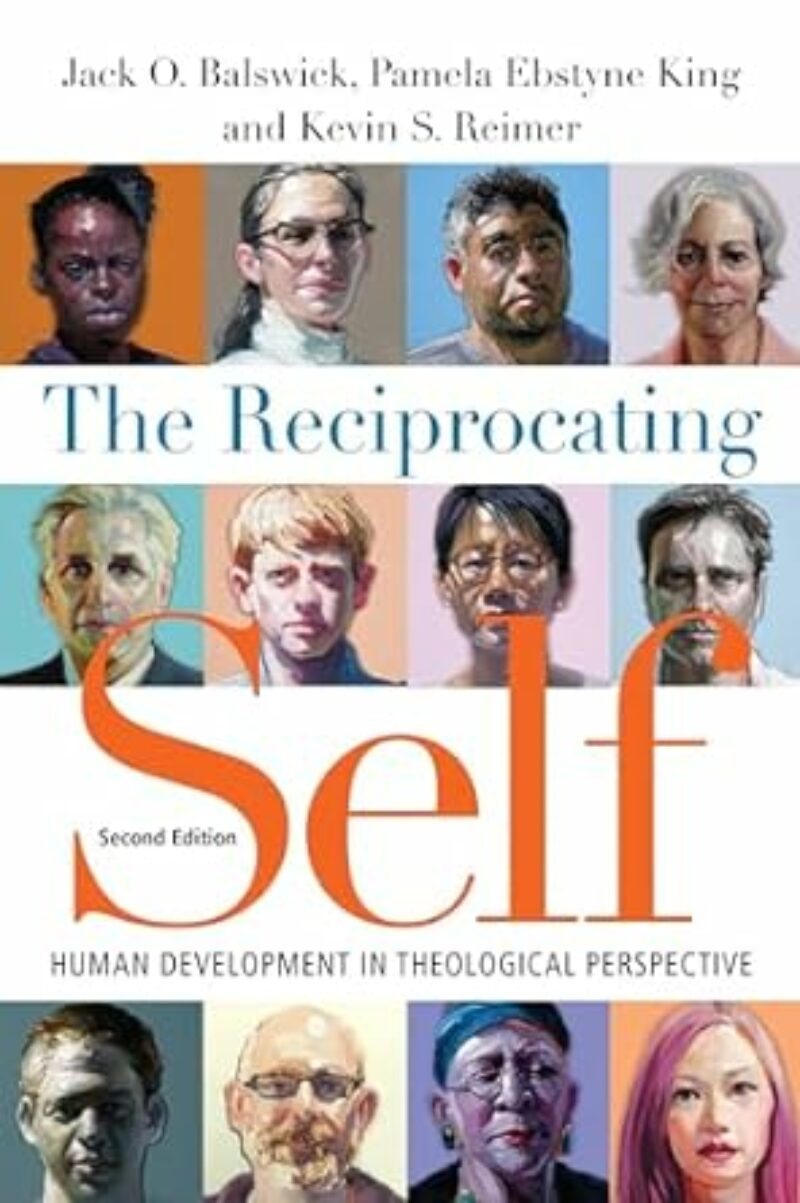Citation
Balswick, J. O., King, P. E., & Reimer, K. S. (2005). The reciprocating self: A theological perspective of development. Downers Grove, IL: InterVarsity Academic Press.
Abstract
The purpose of “The Reciprocating Self: Human Development in Theological Perspective” is to present an integrated view of human development that is based on social science research and biblical truths. We do this by drawing on a biblical model of relationality, where the created goal or purpose of human development is to become a reciprocating self-fully and securely related to others and to God. The ideas for this book came to us as we struggled together to teach human development in a holistic manner. A parallel purpose to providing an understanding of human development within a theological perspective is to provide a context for the reader to understand his or her own developmental issues. As we trace the reciprocating self through developmental life span stages we will be able to address stage-specific developmental issues. A developmental issue is a concern, tension, worry or crisis encountered by the self in the context of change. The source of change can be personal and internal-bodily, mentally, emotionally, socially- or external-relational, familial, communal, societal. Since internal and external change is continual and interactive, life is a process of facing one developmental issue after another.
Copyright
Year: 2005
Holder: InterVarsity Press
DOI: https://psycnet.apa.org/record/2005-06862-000
Continue Exploring

Youth
“We are Protected”: Examining youth perceptions of safety
“We are Protected”: Examining youth perceptions of safety within a faith-based positive a faith-based positive youth development program in El Salvador / Journal of Youth Development

Spirituality
Religion as Fertile Ground
Abstract An extensive body of research points toward spirituality and religiousness as resources for promoting human thriving. People with strong connections to the transcendent and religious meaning in life often view morals and values as central to their self-concepts. Although moral identity theory and contemporary views of virtue development emphasize the importance of narrative identity for habituated moral action, the two are often discussed in isolation of each other. In this chapter, the authors highlight how their commonality is particularly evident when examining the potential of religion to provide a transcendent self-narrative that leads to virtue formation and moral action…

Gratitude
How diverse beliefs shape the experience of transcendent gratitude
Citation Nelson, J., Mangan, S., Baer, R. A., Ramdass, J. V., & King, P. E. et al. (2024). How diverse beliefs shape the experience of transcendent gratitude, The Journal of Positive Psychology, 19(1), 11-24. Abstract As a novel contribution, this study considers transcendent gratitude (e.g. gratitude towards non-human benefactors such as God, Science, or Karma) across diverse belief systems. The sample included 619 participants (M age 37.5, 52.6% female) across the U.S. with beliefs across three distinct categories: a) Theistic; 38.4%), b) Spiritual but not theistic; 26.4%, and c) Non-theistic/Non-spiritual (Other);…


